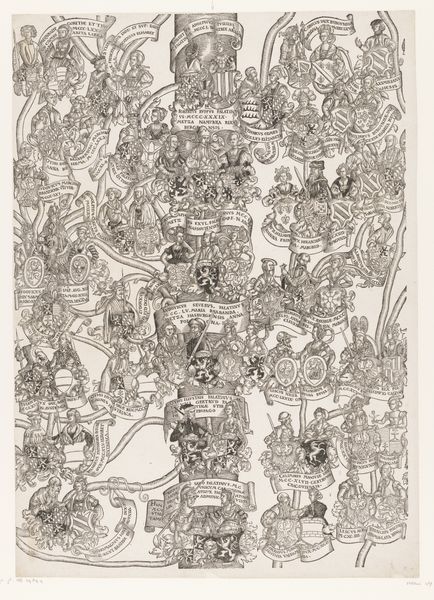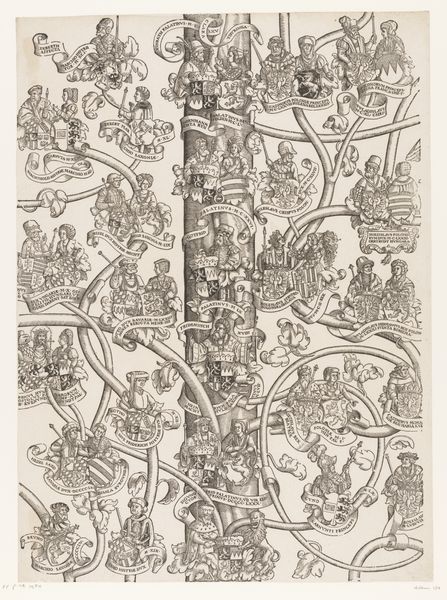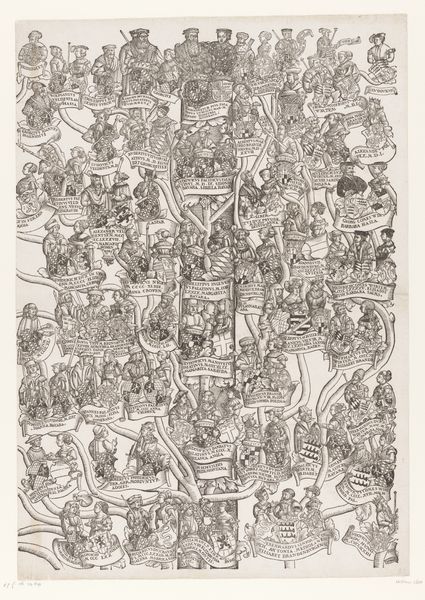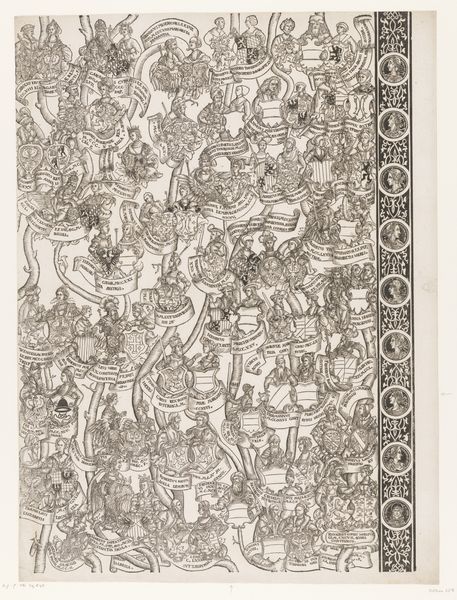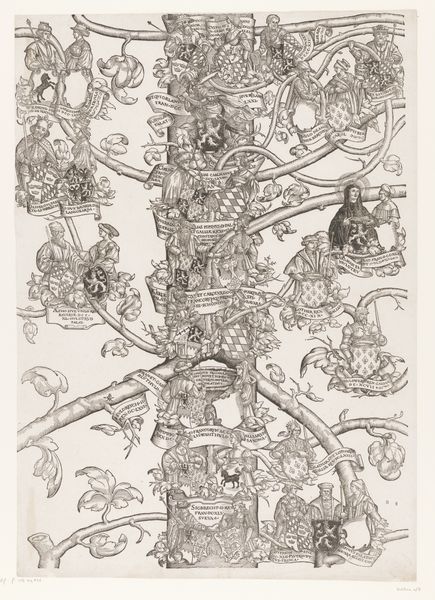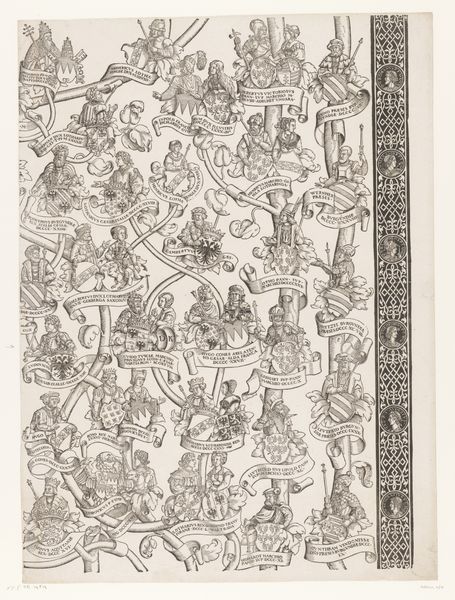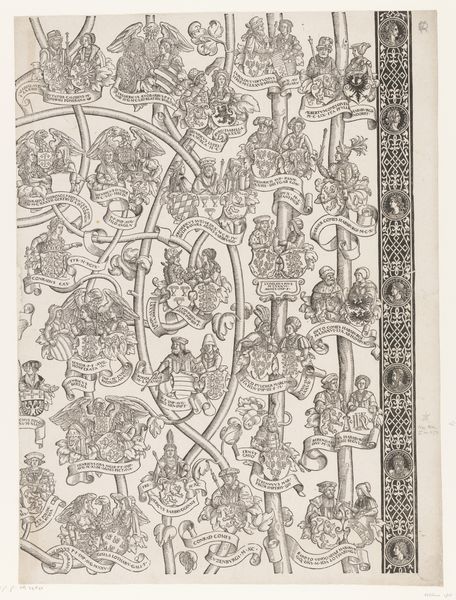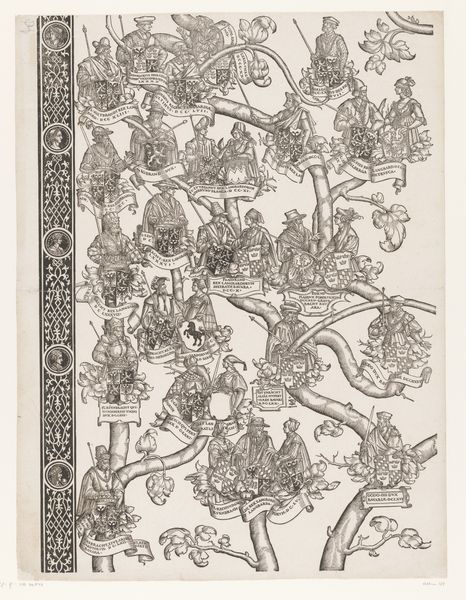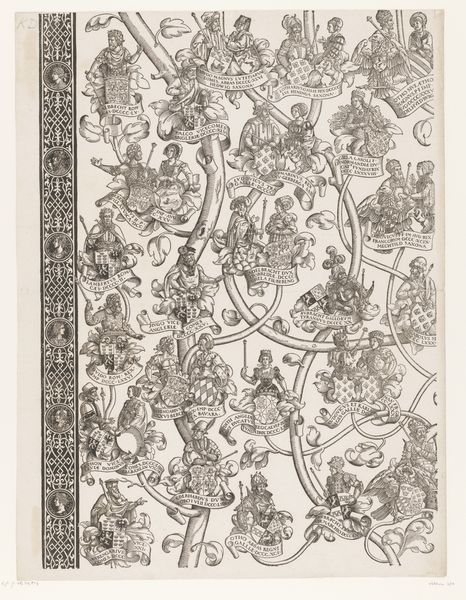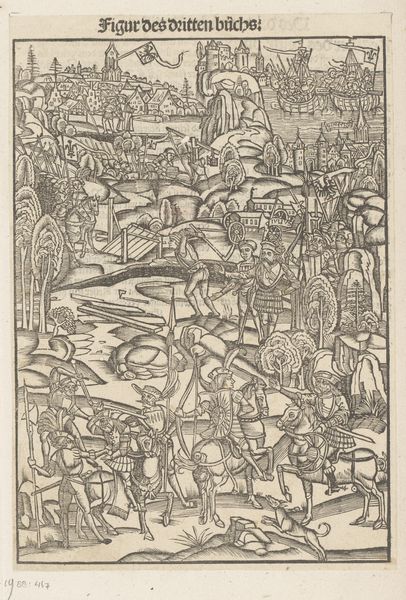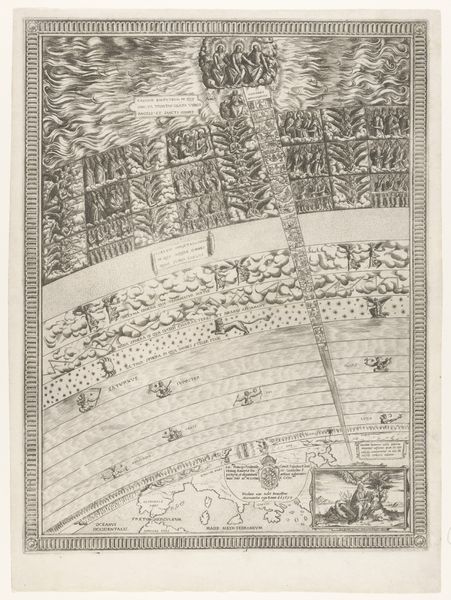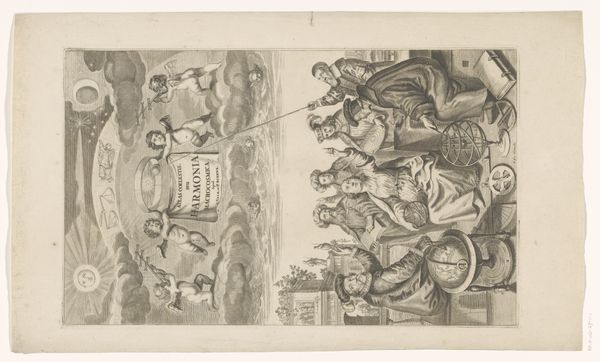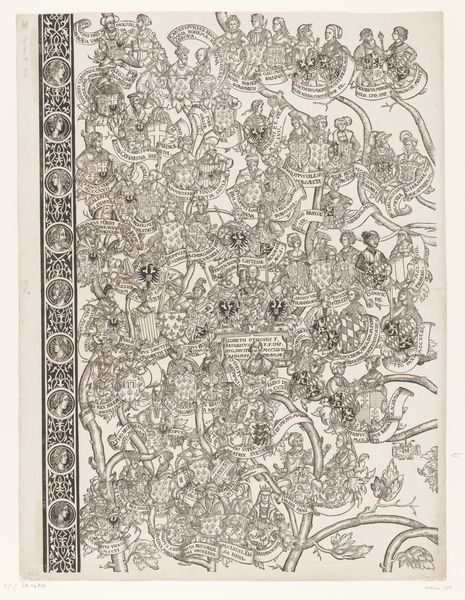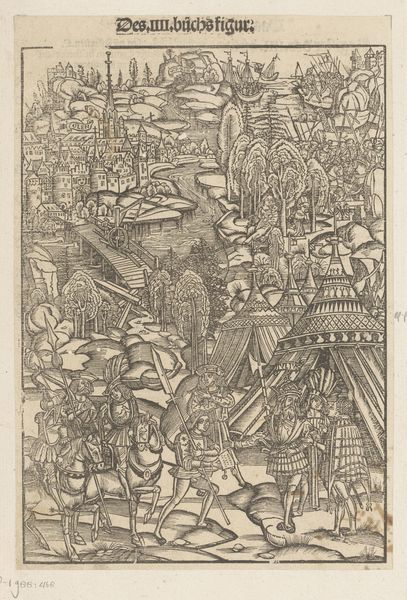
Stamboom van Frederik en Ottheinrich van Palts-Neuburg (plaat 11) 1535 - 1594
0:00
0:00
jakobclauser
Rijksmuseum
drawing, print, ink, pen, engraving
#
portrait
#
drawing
#
pen drawing
# print
#
pen illustration
#
ink line art
#
11_renaissance
#
ink
#
pen-ink sketch
#
pen work
#
pen
#
history-painting
#
northern-renaissance
#
engraving
Dimensions: height 618 mm, width 444 mm
Copyright: Rijks Museum: Open Domain
Curator: Here we have "Stamboom van Frederik en Ottheinrich van Palts-Neuburg," plate eleven. Created between 1535 and 1594 by Jakob Clauser. Editor: Immediately, I'm struck by the intricacy. All those fine lines, packed so closely together! The labor involved must have been considerable. What is the material itself? Curator: This genealogical tree is an engraving. It’s ink on paper, part of the Northern Renaissance tradition, intended as a print. Genealogy served political purposes. The patronage here reflects princely self-fashioning through visual culture. Editor: So, it's about manufacturing status. The very act of meticulously tracing lineage using the skilled labour of engraving elevated the subject? Were these prints widely available or primarily circulated among elites? Curator: They would've been accessible to a fairly select group, displayed in specific locations like libraries and private collections to make statements about identity. Consider the cost of materials like ink and paper and the labour of printmaking during the period. Editor: It speaks volumes about the societal value placed on lineage, rendered physically manifest through ink and paper. Almost like material propaganda, wouldn't you say? How do the chosen materials – the very media – impact its perceived authority? Curator: I see what you’re getting at. Print provided an aura of historical permanence. It's meant to create a feeling of the subject’s power extending across time. A way of establishing that legacy for public view, even if within specific elite settings. Editor: Fascinating how a physical object—a drawing—could perform such cultural work! So much about lineage here, expressed through those branching lines. Curator: Indeed. Art becomes more than just visual; it’s a testament to institutional powers and ambitions. Thank you for shedding light on this piece. Editor: And thank you. Thinking about artistic practice makes all the difference for grasping what art’s doing.
Comments
No comments
Be the first to comment and join the conversation on the ultimate creative platform.
